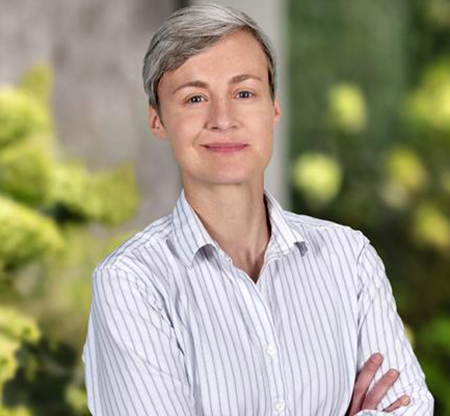Beyond Destination Boycotts: How SocialOffset Empowers Event Planners to Drive Positive Change

Distill down the elements of a changemaker, and you’ll find someone who can identify a problem, define a workable solution, and, most critically, execute that idea. With the creation of SocialOffset, Beth Surmont, FASAE, CMP-Fellow, CAE, checks all those boxes.
The problem: Surmont, vice president of event strategy and design at 360 Live Media, and her co-founder and wife Elena Gerstmann, FASAE, CAE, executive director of INFORMS, faced the challenge of attending conferences in destinations that had passed legislation that didn’t align with their values. While boycotting an event or a destination is an option for attendees or meeting organizers, there’s a strong argument to be made that bans are ineffective, harm local businesses, and stifle dialogue.
The solution: Unsatisfied with boycotts, Surmont and Gerstmann brainstormed an alternative: rather than avoiding a destination, what if they actively supported groups working to change the conditions there?
Similar to carbon offsets purchased to balance out the environmental impact of travel and events, they came up with a platform that made it simple for event organizers and attendees to donate to local charities to offset troubling policies or conditions in a destination.
The execution: SocialOffset launched in early 2023 and has since organized campaigns with 103 events and raised nearly $34,000 from more than 900 donations to 205 charities. Event organizers select among vetted local charities focused on at least one of six areas—racial justice, LGBTQ+ equality, hunger relief, housing security, environmental sustainability, and reproductive freedom.
“We do make an allowance for one additional cause because a lot of groups already have a charity that they champion,” says Surmont, noting that the charity still needs to be vetted and local. Host organizations pay a fee for the SocialOffset service, but 100 percent of the funds raised go to the selected causes.
This article was originally published in our sister publication, MeetingsNet
Making Change

It’s possible that dozens of people could have dreamed up the idea for SocialOffset, but how many would actually follow through and bring it to life? Surmont seems to have a gift for changemaking. After all, SocialOffset is only her side gig.
She describes her day job at 360 Live Media this way: “People hire us to help them make their events better.” She works with organizations to understand problems with their events “and we identify ways to solve them, and oftentimes that requires some type of change.” Surmont is also a noted early adopter of A.I., which changed her approach to meeting management and earned her the 2024 Groundbreaker Award by the Professional Convention Management Association.
She may be especially good at making change because she’s managed a significant evolution in her own life. It was only a decade ago, she says, that she struggled with clinical depression. Desperate for solutions, she took a variety of approaches to healing, such as therapy, medication, meditation, and journaling. And from her health journey, she gained a core lesson: “I’ve had the benefit of realizing that I can change, which not everybody has had,” she says.
As basic as it sounds, she says people need faith that just because something is a certain way doesn’t mean it has to stay that way. “One of the first things is understanding that, yes, things can change, and more things are in your control than you realize.” And taking control can be accomplished in ways large and small. In the office, for example, a meaningful step for Surmont has simply been to take more control over her calendar.
Meeting planners only need to look as far as their “on-site beast mode,” Surmont says, to see the power they possess for taking control and making change. “I think we’re better at uncertainty and change and problem solving than we realize. Anyone who's been an event planner knows that when you’re on site, [you operate at] a whole different level. Whatever comes your way, you just fix, you just handle, and you don’t dwell; you move on to the next thing.” While Surmont acknowledges that “on-site mode” is unsustainable, she encourages planners to tap into that power on a more regular basis.
A Change Mindset
Another change strategy for Surmont is optimism. She cites a TED Talk on the on the importance of believing that you can improve and the power of one simple word, “yet.” Rather than thinking, for example, “I can’t do this,” your mindset changes if phrasing changes to “I don’t know how to fix this—yet.”
“At Smithbucklin, which owns 360 Live Media, one of our core values is optimism,” says Surmont. “Just like you have to practice meditation, optimism needs to be practiced.” Whether she’s working with clients who need to rethink their conference, colleagues who want to reinvent their roles, or a partner who wants to co-design a new charity platform, an optimistic start provides a jump-start for change: “I may not be able to see the path forward right now, but I know I will be able to.”
Don’t miss any event-related news: Sign up for our weekly e-newsletter HERE, listen to our latest podcast HERE and engage with us on LinkedIn!


Add new comment